Days after the state ordered churches across California to discontinue singing and chanting, citing concerns amid the worsening coronavirus pandemic that these activities increase the likelihood of spreading the contagious disease, Sunday services at some Sacramento-area places of worship pressed on with unmasked singing anyway.
The mandate, issued by Gov. Gavin Newsom and state health officials a week ago on July 1, seemed destined to be combated by churches, especially those that consider singing particularly essential to worship.
Some of them, like Grace Bible Church in Fair Oaks, have explicitly said in the past week that they won’t follow the order, doing so “in obedience to God’s Word,” church officials wrote in a message sent to parishioners late last week.
“The elders here at Grace have determined that the state mandate has encroached upon the essential activities of worship as commanded in scripture,” Rick Gregory, the church’s pastor, said during Sunday morning’s service, which was streamed live online. “… We will display some deference to our authorities, however, and we will not sing as much as we sometimes do. But we must sing.”
None of the church staff, volunteers or handful of parishioners who can be seen in the front few rows singing along at the evening service appeared to be wearing masks, archived videos of each service show. Face coverings are now required in nearly all public or shared indoor settings across California, and church staff as well as volunteers are required to provide masks and strongly encourage their use.
Another Sacramento County place of worship, this one a large church linked to a major COVID-19 outbreak reported more than three months ago, opened Sunday’s noon service with a five-minute sermon focusing on the importance of song, followed by nearly 30 minutes of singing, another archived video shows.
Bethany Slavic Missionary Church’s worship team, standing socially distant but unmasked on the church’s stage, led parishioners with their music. At one point, the camera pans to the limited-capacity crowd made up of roughly 100 people and shows some of them singing along. No one in the audience, nor any church staff or volunteers, appears to be wearing masks, video shows.
But then, midway through the service, another preacher took the pulpit and addressed both the statewide mask order and the more recent singing ban, while wearing a face covering pulled beneath his chin.
The preacher, whose name isn’t shown or mentioned in the archived video of the service, told parishioners that church leaders will look to adhere to the singing restrictions going forward, but that they’re still seeking some further clarification on the rules: Does the ban apply to the worship team or just congregational singing? Can parishioners sing if they hold service outside?
To those points, the state’s 14-page guidelines for places of worship make no distinction in terms of who can or cannot sing. The rules do, however, specifically state that churches should “discontinue indoor singing and chanting activities.” Outdoor singing is not mentioned.
Other local churches obeyed the new order over the weekend. Officials at one of the Sacramento area’s largest, Capital Christian Center, said last week that the church would observe the singing restrictions.
Capital Christian Center, which can seat up to 4,000, opened Sunday with capacity limited to 100 people for its first in-person services since the pandemic shutdown. It reopened to pre-recorded music ahead of senior pastor Rick Cole’s sermon, which was also streamed online.
“We shifted gears and had our worship team with some recorded worship today instead of having our live worship team on stage, seeking to be sensitive to what we’re being asked to do,” Cole said Sunday morning. “And it was a huge curveball. And yet, I felt God’s presence in our worship in a beautiful way.”
Grace, the Fair Oaks church, sent an email to its congregation last Friday, which also appeared on its public Facebook page, saying its elders have “seen biblical reasons to comply” with previously issued mandates — social distancing, wearing masks (but only “when intersecting with others”), limiting maximum capacity and disinfecting surfaces between services.
“Out of a fear of God, we have sought to submit to each of the orders issued for our safety as they did not cause us to disobey biblical commands,” the email said, in part.
But after having come around to those other rules after some initial resistance, Grace appears to be drawing the line again, this time faced with the requirement that places of worship prohibit singing and chanting, which the state guidelines say “negate the risk reduction achieved through six feet of physical distancing.”
“Having prayerfully considered the guidelines, the elders have decided that we must sing as part of our worship,” the church’s email to parishioners continued. “So, in obedience to God’s Word, we will worship through singing this Sunday.”
Grace Bible Church did not respond to The Bee’s requests for comment.
Other, much larger churches elsewhere in California have also outright defied Newsom’s order.
Lancaster Baptist Church, a megachurch in northern Los Angeles County with more than 9,000 members, won’t enforce the singing ban or stop his choir. Lancaster Baptist’s pastor, Dr. Paul Chappell, during a Sunday service, told his parish “that the word of God determines how we worship, not Sacramento,” Newsweek reported Monday.
“Grateful for a great day of singing and preaching at Lancaster Baptist!” the church wrote in a Sunday afternoon Facebook post.
Attorney Robert Tyler, the president of Advocates for Faith & Freedom who represented a Lodi church that sued the Newsom administration a few months ago, in a written statement called Newsom’s singing ban “arbitrary, capricious, and tyrannical.”
“Let me be clear, the state does not have the jurisdiction to ban houses of worship from singing praises to God,” Tyler wrote in a letter to pastors and Christian leaders throughout the state over the weekend.
Singing isn’t first clash between churches and state amid pandemic
Weeks ago, churches were among the most aggressive institutions in pushing back on Newsom’s stay-at-home order, which he issued in mid-March and which contained stricter restrictions on in-person gatherings, including religious services, for about the first two months. Several sued the governor to overturn the order, saying it violated their First Amendment rights, although none were successful in court.
The clash between churches and the Newsom administration proved particularly contentious given the number of religious holidays that started in late March, including Palm Sunday, Easter, Passover and Ramadan. State and county governments urged places of worship to transition to online live-streamed services until California got a better handle on the highly contagious virus and could allow churches to safely reopen, albeit with modifications.
Earlier in the pandemic, Sacramento County health leaders attributed several clusters of outbreaks, some of which infected dozens, to churches. County health officials disclosed in early April that more than 70 people linked to the Bethany Slavic Missionary Church congregation had tested positive.
Though church leaders vehemently denied the local health office’s claims that congregants had continued to gather in large groups in members’ homes rather than the church, they then held a conference call with county officials marking the start of a “collaboration” aimed toward helping the county “build trust” in the region’s large Slavic community, county spokeswoman Janna Haynes said at the time.
Grace Bible Church of Fair Oaks held its first in-person service May 31, a little less than a week after the Newsom administration issued guidance permitting churches to reopen with modifications amid COVID-19 activity that, at that point in Sacramento County and throughout much of California, appeared to be waning or at least stabilizing at a more manageable level.
Late May represented Sacramento’s low point in new infections and concurrent hospitalizations since Newsom issued his statewide stay-at-home order on March 19. Only about seven people were hospitalized with the respiratory disease, and daily new confirmed infections were routinely in single-digits.
An intense surge in virus activity since about mid-June has struck the capital region. As of Tuesday’s update from state health officials, 157 patients with confirmed COVID-19 patients were in Sacramento County hospitals, 41 of them in ICU beds.
More than 160 new coronavirus infections emerged each of five consecutive days, from June 22 to June 26, according to the county’s public health dashboard, and the county currently estimates there are about 2,500 residents with active cases, up more than 10-fold from early June.
Spikes in new cases and hospitalizations there and in many other densely populated parts of California prompted Newsom to issue his first major reversal of reopening last week. Newsom during a July 1 news conference announced that bars and a spate of indoor businesses must cease operations for at least three weeks in 19 counties, including Sacramento and Los Angeles, where COVID-19 activity has been increasing at a rapid pace.
With only a passing mention of it during that news briefing, the governor’s office also amended the rules for places of worship, upgrading the restrictions on indoor singing from a strong discouragement to an outright ban.
In numerous email and social media communications to its congregation in May and June, religious leaders at Grace appeared to rephrase a number of earlier mandatory orders from the state and Sacramento County as, instead, optional guidance or suggestions.
In one June 19 email to parishioners signed by the church’s elders, Grace wrote that it was “exempt” from the statewide requirement to wear face coverings in public or shared indoor spaces, an order that Newsom announced one day earlier. The message did not explain why Grace would be considered exempt.
“If you plan on attending church this Sunday, you will not be required to wear a face mask,” the email continued.
A day later on June 20, Grace sent out another email acknowledging that the mask mandate did in fact apply to the church, and asked its parishioners to comply. But the apparent reversal of course also said masks would not be required for the following day’s service, “given the late notice.”
In another message sent to parishioners June 25, Grace said it was only “encouraging” the use of face coverings — and even then, only when entering or exiting the church, while being seated by an usher or while the nearest non-household member is within 6 feet.
“Once seated, face coverings may be removed,” the email instructed.
California’s directives on mask use do include a short list of exceptions that apply on an individual basis, such as medical conditions. But they don’t appear to include any blanket exemptions that would apply to a large group, like a church’s entire congregation.
“Places of worship must take reasonable measures, including posting signage in strategic and highly-visible locations and in reservation confirmations, to remind congregants and visitors that they must use face coverings and practice physical distancing and should frequently wash their hands with soap for at least 20 seconds, use hand sanitizer, and not touch their face,” the state’s rules for places of worship say.
Gregory, in a video blog subtitled “Prioritizing Unity” posted June 27 to the Grace’s YouTube page, asked his congregation not to “judge” or “despise” one another based on whether or not they chose to wear a mask to his Fair Oaks church.
“If somebody felt, for instance, that they had to wear a face covering in order to be Godly — if they went that far and felt that way, you can’t despise them for that,” he said. “Just like (for) a person who really, their conviction is that you must wear a face covering, and (another) person does not wear a face covering, you must not judge them for that. So judge not, and despise not.”
In that video and in Sunday morning’s sermon, Gregory spoke of tolerating differences of opinions when it comes to mask use and other coronavirus mitigation guidelines. In emails and social media posts, the church has referred to recent government orders as “conflicting advice.”
Still, the pastor seemed adamant that his entire parish must continue to sing. He told those attending Sunday morning’s service “who habitually do not sing to consider that you are neglecting the commands of God’s word and the impulses of God’s spirit to praise the Lord.”
Sacramento Bee reporter Dale Kasler contributed to this report.
___
(c)2020 The Sacramento Bee (Sacramento, Calif.)
Visit The Sacramento Bee (Sacramento, Calif.) at www.sacbee.com
Distributed by Tribune Content Agency, LLC.
—-
This content is published through a licensing agreement with Acquire Media using its NewsEdge technology.



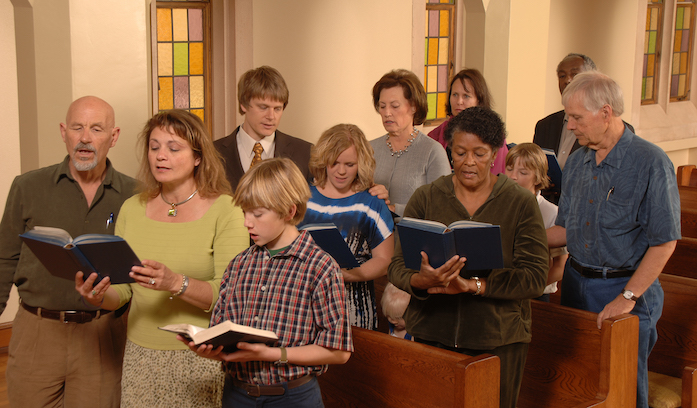
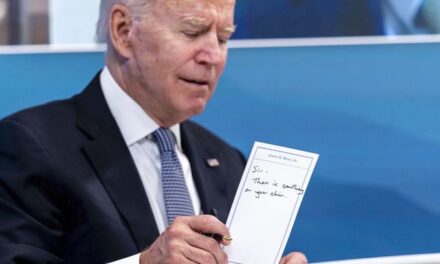
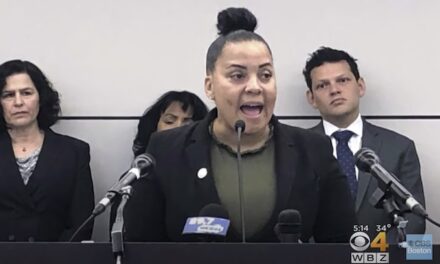
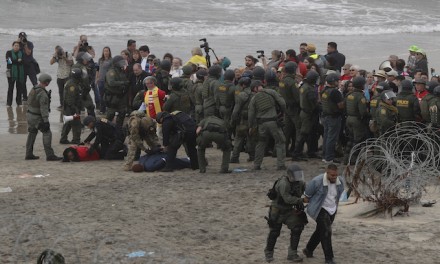
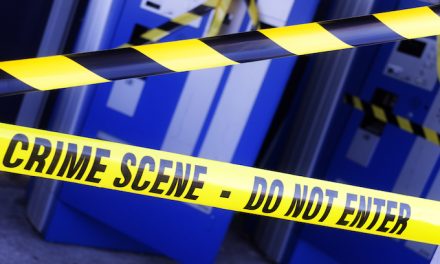






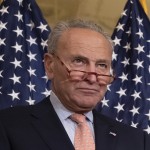



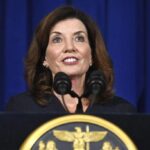
Recent Comments